Donald G. Jackson The Demon Lover
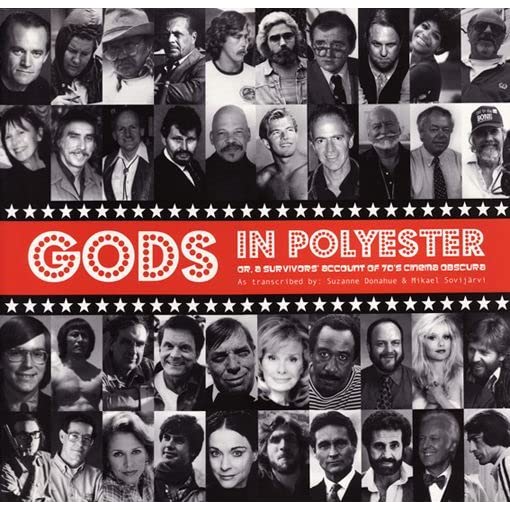

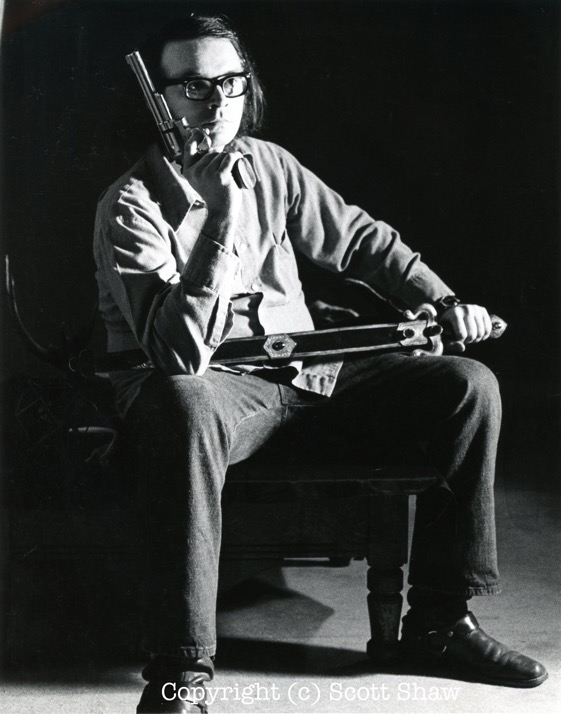
DONALD G. JACKSON
THE DEMON LOVER
and DEMON LOVER DIARY
Viewing: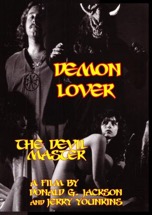
Demon Lover The Devil Master DVD
Demon Lover The Devil Master on YouTube
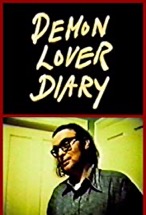
Demon Lover Diary on YouTube
Note: It is essential note, when viewing Donald G. Jackson’s feelings about this film, this is, as he stated, one of the two films he wished he never made. The second was Roller Blade Warriors.
Regarding this film, his feelings were based in the fact that nearing the end of his life, he truly reembraced his Christian faith. This was in no small part motivated by a visit he made to his hometown in Michigan, upon the death of his father, where he became very closely associated with a Christian group based out of that area. Though he always held trepidations about this film and question what his filmmaking career may have become had he followed his true vision, as can be seen in the final interview he gave, nearing the end of this life, hand-in-hand with his reemerging Christian faith, he believe this movie send the wrong message to the movie watching audience. This is an important point to remember if you view this film.
Literature:
Here is a piece I was asked to write for the book, Gods in Polyester: Or, a Survivors' Account of 70's Cinema Obscura about Donald G. Jackson and his film, The Demon Lover.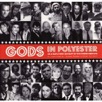 Gods in Polyester: Or, a Survivors' Account of 70's Cinema Obscura
Gods in Polyester: Or, a Survivors' Account of 70's Cinema Obscura
DONALD G. JACKSON AND THE DEMON LOVER
By Scott Shaw
To understand the creation of the film THE DEMON LOVER one must first look to the paradox that was Donald G. Jackson (1943 - 2003). Reverend Donaldo, as he was affectionately known, was born in Tremont, Mississippi, but grew up in Adrian, Michigan. His mother had returned to her hometown to give her first-born a proper southern birth.
First and foremost, Don was a lifelong Christian. He could instantly detail to you the order of the books of both the Old and New Testament, and could exactly quote scripture.
He was a Christian, but only a close knit group of his closest friends were aware of this fact. Most were exposed to the other Donald G. Jackson — the one who was prone to yelling and screaming at inept cast and crew members, the filmmaker who hated a person one minute but loved them the next, the man who was married for forty years but frequently seduced the new starlet on the set, the man who was known to trip on mushrooms and ecstasy, the man who loved the music of Elvis Costello and Kid Rock but was a consummate folky. Perhaps Fred Olen Ray described Don best when he placed a notice of his death on the Fangoria website, "Of all the independent low-budget/no-budget filmmakers I have known throughout the years, I can say, with a completely straight face, that Donald G. Jackson was one of the few true artists of the genre. Never cowing to the pressures and demands of financiers, or straying from his course in order to please others, he stuck with his vision through hell and high water. In doing so he created some of the most bizarre films of recent memory, films that often left the viewer scratching their heads in disbelief. Whether you 'got it' or not, Don truly had his own vision and he never gave up on it. I knew Don for 27 years and I'm pleased to say he was my friend."
Don possessed the desire to create a feature film long before production on THE DEMON LOVER every began. As Don grew up, he was in love with the Republic Serials of the 1930s, 1940s, and 1950s. He was also an avid comic collector. With action-adventure super heroes, and the good guy always prevailing over the bad guy as a backdrop, he was forever shaped by his early influences.
Don first began shooting 8mm, then Super 8, and finally 16mm in his adolescence and early twenties. Though he wanted to be a filmmaker, like so many other would-be creative people, he was locked into the grind of the nine-to-five. He worked at a factory which produced auto parts for fifteen years. Ironically, it was at this factory that Don meet the man who would helped to get his first full-length feature film, THE DEMON LOVER, off of the ground. That man's name was Jerry Younkins.
Younkins, on his first day of work, at the same factory where Don was employed, had his finger chopped off by a machine. This accident was to equal $6,000.00. Younkins decided that the money would best be spent on making a movie with the budding filmmaker, Donald G. Jackson — a movie in which he would star.
Prior to meeting Younkins, Don was already in motion towards making his first feature film. It was to be a film about an Africian-American Private Investigator named, Lincoln Green. This was also to be the title of the film. Younkins, on the other hand, was much more influenced by the horror genre of the era. As he had the money, Don's focus was shifted to making a horror-style feature entitle, THE DEMON LOVER.
Though Younkins wanted to make a straight-ahead demonic, horror film, Don, as a Christian, changed the focus of the film to a parody. Whether or not this was by accident or decision, Don would never say. But, by the time the feature was complete, it was so bizarre, a parody was all that it could be called.
The ironic things about all of this was the fact that by the time everything was in place to make the movie — Younkins had spend all of his money. THE DEMON LOVER was, therefore, financed by Don taking out a mortgage on his house, getting a loan on his car, and borrowing money that eventually drove his family into bankruptcy. By the time the creditors came calling, Yonkins, claiming poverty, was nowhere to be found. Don would often lament, "I wonder what would have happened if I had made the movie I wanted to make..."
THE DEMON LOVER had at least two strikes against it from its inception. One, the majority of the actors had absolutely no experience in acting for the camera. And two, the script was written as a high-budget feature that could never have been made for the small amount of cash which was actually possessed by the filmmakers.
Many may think that simply attempting to make a movie in Michigan would be hard enough. This was actually not the case. The Ann Arbor Film Festival was one of the most influential festivals of the era. In addition, many seasoned filmmakers lived in the area. Though this was the reality, the disorganized wildness which was the cornerstone of Don Jackson's filmmaking career lead the film down the road to becoming, for lack of a better description, "An art film."
The man who would later rise to rock star status as, "The Motor City Madman," Ted Nugent, actually signed on to do the music for the film. In the late sixties and early seventies, Detroit was the Mecca for hard rock. Nugent lived close to Don and Yonkins and signed on for the gig during a period of time when his band, The Amboy Dukes, was going through a period of reorganization. Soon after this, however, Nugent got a new record contract and shot to superstardom. Don claimed many of the songs intended for THE DEMON LOVER were on Nugent's album, CAT SCRATCH FEVER.
Pre-Production on THE DEMON LOVER took almost two years before any film actually began to roll in the camera. Once filming was completed, it took another two years to be edited and released. As is so often the case of the filmmaker, Don made virtually no money on the film, even though it was released to the then very lucrative drive-in theater market, and was also eventually released on video under a number of titles.
Though Don was an active participant and an outspoken proponent of the film, he never liked the final content of the movie. He would often detail, "A lot of negative things happened in association with making that movie. Things that I do not believe would have happened if it was not about such a dark subject. I really made a mistake letting Yonkins talk me into making that movie."
Though the movie was never the feature Don wanted to make, and he regretted it ever since its inception, Don was given a gift in association with THE DEMON LOVER that few first-time filmmakers will ever receive. That gift was a documentary about the making of the film entitled, THE DEMON LOVER DAIRY. Though THE DEMON LOVER DIARY, was made over twenty years ago, it continues to show at film festivals and receive extensive publicity in newspapers and film magazines to this day.
Joel DeMont and Jeff Kreines made, THE DEMON LOVER DIARY. Don had initially hired Jeff to be the cameraman on, THE DEMON LOVER and agreed to allow them to make their documentary, financed by AFI, The American Film Institute.
For those of you have seen, THE DEMON LOVER DIARY, it is obviously a one-sided attack on Don, which does not really depict the true essence of the film, nor the knowledge of filmmaking that Don possessed by that point in his life. This being stated, THE DEMON LOVER DIARY did more to immortalize the life and the filmmaking career of Donald G. Jackson than anything to date.
In 2002, THE DEMON LOVER DIARY was screen to a sold-out crowd at THE DIRECTOR'S GUILD OF AMERICA, in Hollywood, California, in association with The Los Angeles Film Festival. Just prior top this, there was an enormous amount of press about Donald G. Jackson and THE DEMON LOVER. Several newspapers ran long articles and full-page photo spreads on Don and the movie. This was a great passing gift to the filmmaker, as he died less than a year later.
DONALD G. JACKSON AND THE DEMON LOVER DIARY
Don prepared a list of anticipated questions and passed it out at the end of the aforementioned screening during the Press Q&A session. This questionnaire provides a deeper insight into the life, the filmmaking career, and the paradox which was Donald G. Jackson and his movie, THE DEMON LOVER.
Why didn't you fire Jeff Kreines, Joel DeMont, and their assistant Mark as soon as you realized what was going on with THE DEMON LOVER DIARY?
I had no money. Firing them would mean a total failure on my part. They would have taken the camera equipment and there would be no film. Word would have gotten out the film was shut down. I needed to keep the shoot going until we could find local investors. Lucky for me, we found some money and I didn't have to put up with any more crap. I fired them with a vengeance!
Wasn't Jeff Kreines your friend?
I met Jeff in 1974. We got along great until he got hooked up with Joel DeMont who had her own agenda. Also it took so long for the film to start that Jeff was very frustrated by the time we actually started to shoot. Plus, I fired him on the phone several times before he left Boston to come to Michigan. We had plenty of friction before the start of the shoot. He knew I'd talked to other cameramen and also that I wanted to shoot it myself.
What was it about Jeff Kreines that impressed you?
I saw his movie RICKY AND ROCKY at the Ann Arbor Film Festival. It was all shot with a wide angle lens and a moving handheld camera. This is the style I wanted to shoot THE DEMON LOVER. It never occurred to me that our amateur actors wouldn't be able to say but only five or six words without a fumble. We did some long takes, but ended up having to fragment the movie and puppet the actors just like a normal movie.
Does it bother you that all the reviews are in favor of Jeff and Joel and that you get slammed beyond belief?
What can I say? DEMON LOVER DIARY was made twenty-seven years ago. Jeff and Joel were there for six days. How could they live every day with this movie?
I've gone on and made over forty different features plus worked on plenty of others. They've done nothing except promote this DEMON LOVER DIARY and send it to festivals since 1980!
Why do you think the DEMON LOVER DIARY has done so well?
You have to remember. This is before home video; before the internet. There is a lot of BLAIR WITCH type realism in the movie. It is in reality a mixture of real and fake. Many times I was acting for the camera — but try and convince someone of that. People want to believe it is all true. Jeff and Joel were self-righteous brats who were too lazy and low energy to have what it takes to make a real movie.
Do you have any regrets?
I sure wish Joel had focused some of her film on Bob and Dennis Skotak. Bob made the Demon suit. Dennis took over for sound. These guys went on to win three Academy Awards. Also my friend Bryan Greenberg isn't given any coverage. He helped with the sets and became my camera assistant when we fired Jeff and Joel. Everyone on my team moved to California and has been working. I stayed behind a while to make I LIKE TO HURT PEOPLE — a classic wrestling film starring André the Giant. Bryan Greenberg shot a lot of the movie. Dennis Skotak did most of the sound work. Hollywood was calling them. I finished the movie and headed for Roger Corman. Later New World put the wrestling film out on home video.
Did Jeff and Joel miss anyone else who was part of THE DEMON LOVER?
Marvel comic book artist Val Mayerik played the hero. He was on the set and available for interviews. They never once talked to him. We also had Gunnar Hansen — star of the biggest independent movie of all time in 1974-75, THE TEXAS CHAINSAW MASSACRE. Jeff and Joel could have cared less. There is a 10 min sequence where Joel photographs two kids playing on a swing set instead. Those kids are probably 35 years old today!
Any final words on THE DEMON LOVER or DEMON LOVER DIARY?
THE DEMON LOVER was one of the world's first films shot on 16 mm color negative. TEXAS CHAINSAW MASSACRE was filmed on ECO reversal. We were going to be one of the last film shot on 35 mm TECHNISCOPE, but Technicolor discontinued the process a few months before we started the shoot. THE DEMON LOVER was also one of the first movies where a group of kids get together and then get killed off one by one. This later became popular with movies like FRIDAY THE 13TH. Sam Rami and Bruce Campbell came to a midnight show and asked questions. I taped some of their telephone calls to me when they were researching shooting 16 for 35 mm blowups. Fred Olen Ray saw THE DEMON LOVER in a drive-in. He treated it just like a regular movie. Later he called me and I think got more inspired to shoot his own movies. We've been friends since 1977. And I've known The Skotaks and Bryan Greenberg since about 1965.
Where was THE DEMON LOVER shown?
We had seven 35 mm prints. The movie played drive-ins and theaters in Texas, Florida, Alabama, Tennessee, Kentucky, Michigan, Ohio, and New York. When we played the Lyric Theater on 42nd street in New York City, THE DEMON LOVER out grossed CARRIE that had just opened across the street. We had three world premieres and midnight shows. Jerry and I was on the cover of Detroit newspapers and on Detroit TV. We did radio interviews. I got fired from my factory job, but it forced me to find investors and continue as an indie filmmaker.
When did you first see DEMON LOVER DIARY?
John Caldwell showed it to me in a private room when Jeff and Joel entered it in the Ann Arbor Film Festival. DEMON LOVER DIARY wasn't show at the festival because the selection committee knew it was contrived. Next time I saw it was 1982 at the NuArt theater on a double bill with THE DEMON LOVER. I have pictures of the marque. DEMON LOVER/DEMON LOVER DIARY. L.A. Times critic Kevin Thomas was there and talked to me afterwards. He gave the event a semi-good review. DEMON LOVER DIARY showed at UCLA in 1987 and I answered questions afterwards. The last screening was in Hollywood three years ago. It was a small theater. Sold out. About one-hundred people in the audience. I answered questions for over an hour after the show. The filmmakers loved it!
How did it happen for it to be shown on 22 June 2002 on Saturday night at the DGA on Sunset in Hollywood?
Jeff and Joel are in solid with the IFP. I'm shocked that anyone would care about this 1975 documentary, but I guess the subject is still fascinating. AMERICAN MOVIE came close, but that guy only made a twenty minute film. He was on Leno and Letterman. Got tons of publicity. And there's a lot of BLAIR WITCH type events that go on in the film.
What would you do if you had it to do all over again?
Well, I've had this discussion with my good friend Dr. Scott Shaw. He and I created Zen Filmmaking, a style of filmmaking where we allow spontaneous creativity to be our only guide. He thinks if I hadn't made THE DEMON LOVER, I might still be back in Michigan working in a factory! So, though it was never the film I wanted to make, it did get me out of Michigan and gave me the opportunity of having a filmmaking career.
L.A. Weekly Article
Here is a fun piece penned and published about Donald G. Jackson and The Demon Lover just prior to when the film was going to show at the Director’s Guild of America for the Los Angeles Film Festival. This article was originally published in the L.A. Weekly.
Incidentally, Donald G. Jackson, myself, and a number of his friends were in attendance for that screening and afterwards there was a Q & A with Don.
THE HORROR, THE HORROR
Paul Cukkum June 19, 2002
In 1975, BURGEONING HORROR MAVEN DONALD G. Jackson leveraged his house, car, furniture, job and familial obligations to follow his heart — in this case, a breathtakingly inept horror crudité called The Demon Lover, about a campus-area Satanist and his guileless hippie minions who conjure a giant kachina doll in floor-length mink with buffalo horns and bad Alien teeth. Jackson's co-director and star, Jerry Younkins, a fellow assembly-line worker at a Michigan speedometer-cable factory, went him one better by ponying up his $8,000 of the production budget by — it is strongly intimated in the 1980 “making of” documentary Demon Lover Diary, screening at this year's Los Angeles Film Festival — sacrificing a finger for the insurance settlement. (He appears throughout in a single Dr. Strangelovestyle black-leather glove, and went on to author Combat and Survival Knives: A User's Guide.) Don and Jerry (pace Simpson and Bruckheimer) were so enamored of 1974's The Texas Chain Saw Massacre that they initially consulted director Tobe Hooper for info on film stock, hired Chain Saw cinematographer Daniel Pearl until their money ran out, solicited original Leatherface Gunnar Hansen for a two-day top-billed cameo, and eventually played the Lyric Theater on 42nd Street in New York City, whose marquee can be glimpsed sporting the Chain Saw title in a famous shot from Taxi Driver.
Into this volatile mix, Jackson lured MIT graduate students Jeff Kreines and his girlfriend Joel DeMott, students of famed documentarian Richard Leacock, and their hapless soundman pal Mark Rance (today a premier producer of DVD extras for such films as Boogie Nights and Magnolia). Kreines, whose short film had been a standout at the 1975 Ann Arbor Film Festival and, more important, who owned his own 16mm Auricon camera package, agreed to take the job only if DeMott was allowed to make a cinema vérité chronicle of the 14-day shoot. Thus was Demon Lover Diary born, and things went downhill from there.
THE ANIMOSITY BETWEEN THE TWO camps is palpable from the outset. On camera, Don is the epitome of a small, nervous man overwhelmed by his imminent destiny. (At one point, almost to himself, he proclaims, “The director really shouldn't be carrying anything. I'm carrying the weight of the whole film.”) Jerry, a hippie redneck with a waist-length mane and biker mustache which resembles that of Bert Lahr's Cowardly Lion, and who is entrusted with coaching the actors, is given to fatuous pronouncements like “At the precise point Susan gets her throat ripped out, I want to feel coldness.” As it's becoming clear — to us and to DeMott — that neither of these guys has the first idea how to go about making a film, they tell a reporter from the Jackson [Michigan] Citizen-Patriot, “We think we've done our homework, and we think we've paid our dues,” then cancel a critical morning shoot to do another interview with the Detroit Free Press.
Obliged by budgetary constraints to put up at Don's mother's house, the crew, forbidden to discuss the film's subject matter, is instructed to say only, “It's a police story.” Deranged from lack of sleep, DeMott and her soundman collapse in frequent giggling fits, or sing “The Demon Lover sucks” to the tune of “The Farmer in the Dell.” Meanwhile, real-life horror abounds on the edges of the frame, as with the underage starlets who appear ready to do just about anything on camera, or the P.A. who lives (and sleeps) with his foster sister, who has a boyfriend, who has a pregnant wife. And then there's Motor City Madman Ted Nugent, a neighbor in suburban Detroit, who makes available to the production his vast arsenal of weapons, including multiple handguns and at least one crossbow. The final shot is of the filmmakers running for their car, with the crew ostensibly shooting guns at them.
The Demon Lover was released in 1976, but, alas, the final product (soon to be known in various video incarnations as Demon Master, Demon Tower, Master of Evil, Devil Master and Coven) was somewhat less than the consummate blend of horror and knowing irony Don and Jerry had intended. In the 20 years since, Don has gone on to an estimable, if perhaps not enviable, career in low-budget horror — much of it under the hallowed aegis of Roger Corman — in films like the enigmatically titled Lingerie Kickboxer, the five (count 'em) installments in the Rollerblade Warriors franchise, and his magnum opus, Hell Comes to Frogtown. Meanwhile, Kreines and DeMott co-directed the documentary Seventeen (1982), which was to have been part of a six-film PBS series set in Muncie, Indiana, and did, in fact, become a brief cause célèbre when corporate underwriter Xerox demanded extensive changes due to honest, and occasionally graphic, representations of high school students drinking, smoking pot, swearing, and engaging in casual racism, high-speed auto collisions and interracial sex. (Rather than comply, producer Peter Davis, of Hearts and Minds fame, withdrew the film from consideration.) For whatever reason, Demon Lover Diary has never, until now, been made widely available on video or DVD. (It's scheduled for release this fall.)
On his Web site, Jackson claims his intention all along was to produce a horror-film parody. More to the point, he charges Demon Lover Diary with the worst sort of unconscionable, manipulative, neo-Flahertian revisionism. “How much of it is real and what is fake will be a subject for debate as long as the film is shown,” he states. Rather than submit to an interview, DeMott agreed to respond to a list of questions, which resulted in a positively sulfuric fax. (“I wonder if you even saw my movie . . . What's the point of continuing this conversation? Oblivious to the host of complex beings that dance in and out of the Diary, you seem determined to displace my subject, the dancers, for some hideous 'project' subject.”) What seemed to set her off the most was any reference to Jackson and his opinion of her movie: “Let me remind you that Donald G. Jackson is a prisoner/survivor in the land of his dreams. As am I, in mine.” Of course, to be fair, that was two years ago, but, frankly, I'm scared to call her back.
It is just possible that these filmmakers are locked into a lifelong angry symbiosis, and that somewhere in their existential and cosmic struggle — like Christopher Lambert and Clancy Brown in Highlander — lies the key to the riddle of truth, memory, ambition, immortality and the impulse to art.
In any case, it will be nice to see Demon Lover Diary on DVD. But why, exactly, has it taken them this long to release it? The Web site is www.zendance.com. Ask at your own peril.
Demon Lover Diary screens at the Los Angeles Film Festival on Saturday, June 22, at 7 p.m. For information about the festival, see Good Times and the special section in this week's L.A. Weekly Calendar.
DEMON LOVER DIARY Produced and directed by JOEL DeMOTT Released by DeMott/Kreines Films At the Los Angeles Film Festival
Here's the link to the original article, The Horror, The Horror.